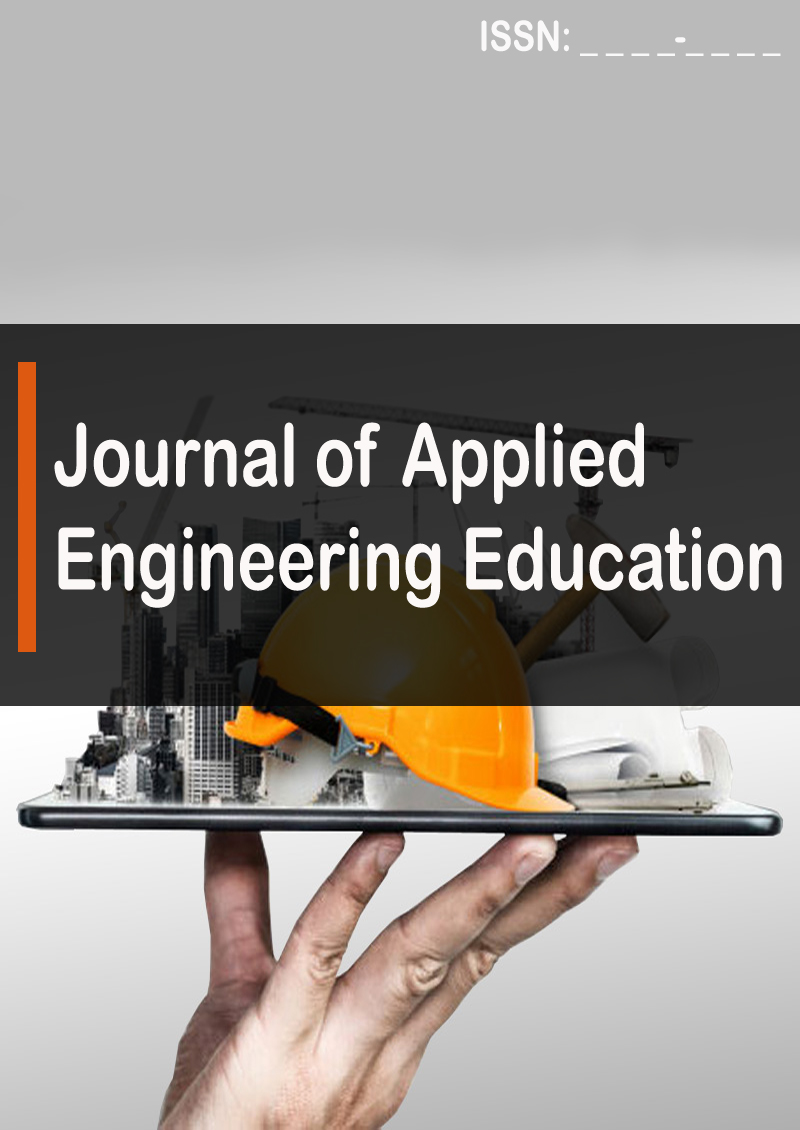Aims and Scope
Journal DOI: 10.33140/JAEE
Aim: The Journal of Applied Engineering Education aims to bridge the gap between theoretical knowledge and practical application within the field of engineering education. We strive to promote a holistic approach to learning by emphasizing real-world applications, innovative teaching methods, and collaborative initiatives.
Scope:
The scope of the journal includes, but is not limited to:
- Case studies showcasing successful applied engineering education programs.
- Innovative teaching methods and strategies for enhancing practical skills.
- Assessment and evaluation methodologies in applied engineering education.
- Challenges and solutions in implementing practical approaches to engineering education.
- Future directions and emerging trends in the field.
The journal welcomes contributions from educators, researchers, and industry professionals committed to advancing the quality and effectiveness of engineering education through practical applications. Some of the subject areas that the journal focuses on include:
|
Mechanical Engineering |
Urban Planning | Sustainable Engineering |
|
Electrical Engineering |
Process Engineering |
Human Factors Engineering |
|
Civil Engineering |
Microelectronics |
Electrical Power Systems |
|
Aerospace Engineering |
Ergonomics |
Thermal Engineering |
|
Chemical Engineering |
Acoustical Engineering |
Photonics |
|
Computer Engineering |
VLSI Design |
Machine Learning |
|
Biomedical Engineering |
Remote Sensing |
Operations Research |
|
Environmental Engineering |
Wireless Communication |
Quantum Computing |
|
Industrial Engineering |
Mining Engineering |
Structural Dynamics |
|
Systems Engineering |
Quality Engineering |
Computational Fluid Dynamics (CFD) |
|
Materials Science |
Renewable Resources |
Bioinformatics |
|
Robotics |
Precision Engineering |
Geographical Information Systems (GIS) |
|
Structural Engineering |
Biomechanics |
Electrical Circuits |
|
Software Engineering |
Agricultural Engineering |
Signal Processing |
|
Nuclear Engineering |
Aerospace Technology |
Machine Vision |
|
Biotechnology |
Energy Systems |
Fluid Mechanics |
|
Renewable Energy |
Nuclear Power |
Thermal Systems |
|
Control Systems |
Computational Mechanics |
Sustainable Infrastructure |
|
Geotechnical Engineering |
Optical Engineering |
Urban Design |
|
Transportation Engineering |
Environmental Sustainability |
Operations Management |
|
Mechatronics |
Computer Networks |
Quantum Information Science |
|
Nanotechnology |
Information Systems |
Advanced Manufacturing |
|
Telecommunications Engineering |
Cyber-Physical Systems |
Water Resources Engineering |
|
Cybersecurity |
Software Development |
Marine Engineering |
|
Artificial Intelligence |
Human-Computer Interaction |
Petroleum Engineering |
|
Data Science |
Industrial Automation |
Power Electronics |
|
Structural Analysis |
Chemical Process Engineering |
Fluid Mechanics |



